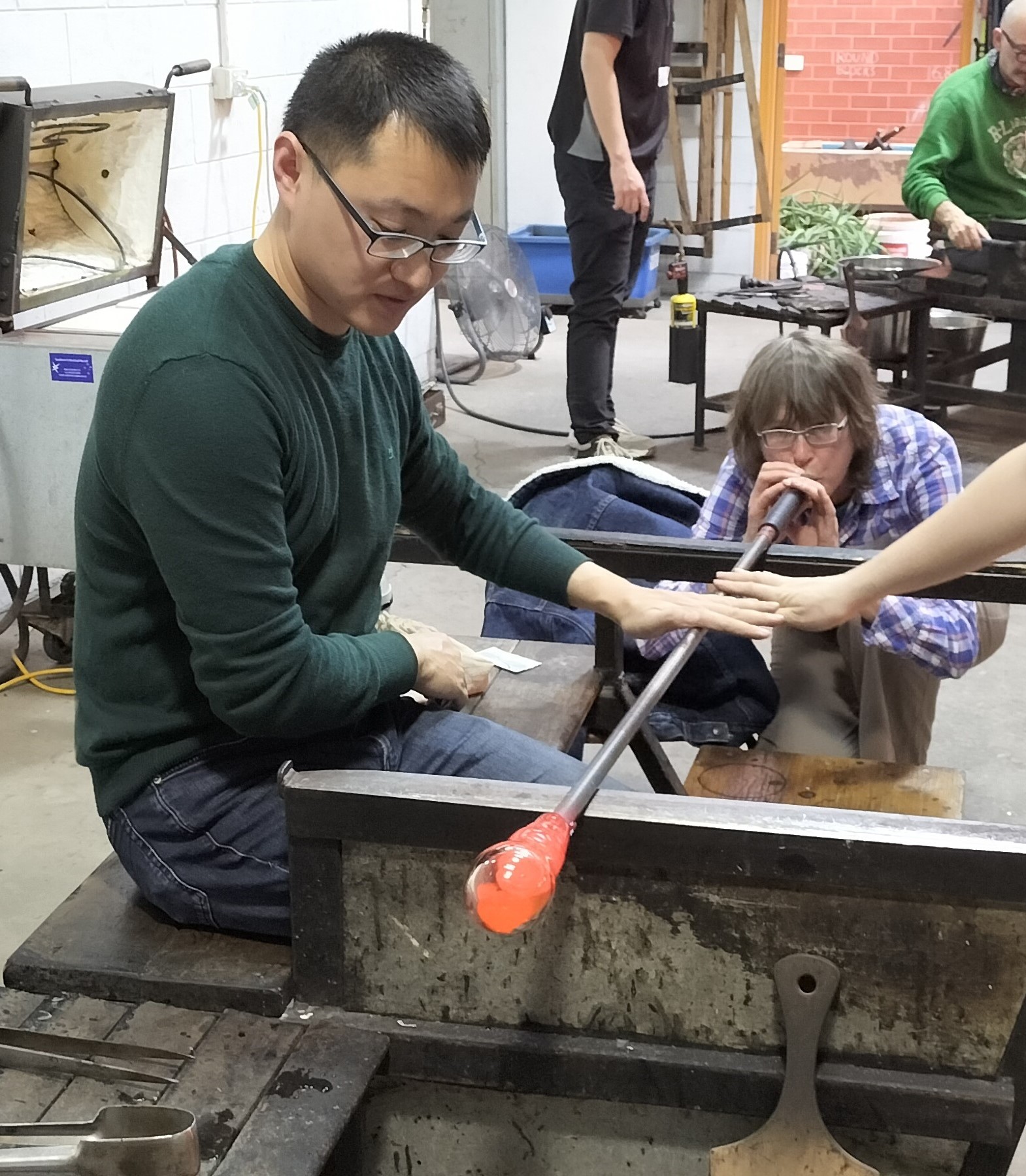EZY-GLAS provides eco-friendly coloured glass products for use in glass art, printing and other high-value applications where product identity, safety and quality are prerequisites.
Throughout human history, the discovery of new materials has propelled human societies through successive stages of advancement – the Stone Age, Bronze Age and Iron Age. But what material now underpins our modern society?
Look no further than the glass materials found all around us – stained, moulded, blown, paned, mirrored, display, fibre, foldable, bioactive, and the list goes on. We are in the Glass Age.
In recognition of the importance of glass in modern society, the United Nations has designated 2022 as the International Year of Glass. Glass making and glass materials innovation have driven progress in all areas of our lives including architecture, art, food safety, optical communications, sustainable energy, mobile electronics, reusable and recyclable packaging, circular economy and medical devices.

From the earliest glass artifacts made in 3100 B.C Egypt, the process of creating glass begins with melting raw materials, such as sand (silicon dioxide), soda ash and limestone, to high temperatures. Glass is shaped when it has a viscosity between that of a liquid like water and that of a solid like salt and moulded into the desired product. At its most fundamental level, glass is a nanotech material. Its fabrication and application begin and finish with understanding physical and chemical phenomena at the nanoscale.
Colourants added during the glass making process produce the vibrant diversity of glass colours around us. However, some colours are more difficult or troublesome to create. Commercial glasses/enamels of warm colours (e.g., oranges and yellows) mostly contain toxic heavy metals like lead and cadmium. Incorporating toxic materials into the glass-making process significantly increases manufacturing costs due to the necessity of protecting the environment and the health and safety of glass workers. The expensive toxic process and waste control systems needed to sustain the business under increasingly stringent environmental regulations are an extra burden for the industry.
Taking advantage of ANFF-Optofab’s glass manufacturing capabilities, Yunle Wei, Jiangbo Zhao and Heike Ebendorff-Heidepriem at the University of Adelaide have invented a nanotech solution to impart warm colours into any oxide-based glass. Their GLAS technology employs non-toxic and biocompatible gold and silver nanoparticles (NPs). At the nanoscale level, gold NPs are not gold in colour nor are silver NPs silver. NP colour is a size-dependent property, meaning that NP size determines the colour that results. GLAS technology forms these NPs in a highly controlled way to obtain different particle sizes. By controlling NP size, GLAS technology can produce a broad, non-toxic, colour palette.
In 2020, these inventors established the start-up company EZY-GLAS Technology Pty Ltd to commercialize their GLAS technology. EZY-GLAS will be able to mass-produce eco-friendly glasses/enamels of warm colours with unique light-manipulating properties, as well as of other colours in conjunction with selected colorants. Their coloured glass products are in the form of powders or paste that can be applied to glass, ceramics, metal or any base material that will withstand a fusing step to burn-in the coloured glass particles into the base material for decoration, labelling and anti-counterfeiting.
EZY-GLAS products empower glass makers and manufacturers to move away from the use of heavy metals in their glass making processes, improving health and safety conditions for their workers and protecting the environment from toxic waste. In addition, GLAS-based glasses and enamels are fully recyclable, supporting the sustainable production, use and reuse of glass products.
GLAS-based coloured glass has been successfully employed by local glass artists at the Jam Factory to make glass artefacts. EZY-GLAS is also exploring other market opportunities such as jewellery; decoration and art; glass & ceramic based packaging for food, beverage, cosmetics, perfumery and pharmaceutical drugs; 3D glass printing and more.
